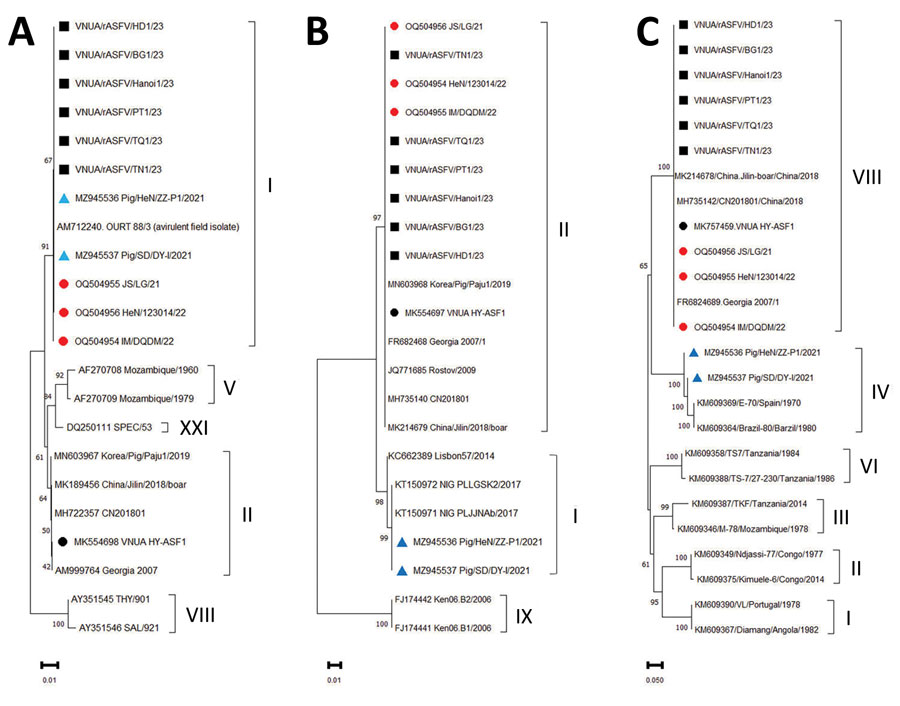Volume 30, Number 5—May 2024
Dispatch
Detection of Recombinant African Swine Fever Virus Strains of p72 Genotypes I and II in Domestic Pigs, Vietnam, 2023
Figure 1

Figure 1. Phylogenetic trees of ASFV, based on the sequences found in the p72 (A), p54 (B), and CD2v (C) regions, Vietnam, 2023. Black squares indicate rASFV I/II strain from Vietnam, red circles indicate rASFV I/II strain from China, black circles indicate first reported ASFV p72 genotype II strain from Vietnam, and blue triangles indicate ASFV p72 genotype I strain from China. Scale bars indicate phylogenetic distance (nucleotide substitutions per site). ASFV, African swine fever virus; rASFV, recombinant ASFV.
Page created: April 04, 2024
Page updated: April 24, 2024
Page reviewed: April 24, 2024
The conclusions, findings, and opinions expressed by authors contributing to this journal do not necessarily reflect the official position of the U.S. Department of Health and Human Services, the Public Health Service, the Centers for Disease Control and Prevention, or the authors' affiliated institutions. Use of trade names is for identification only and does not imply endorsement by any of the groups named above.